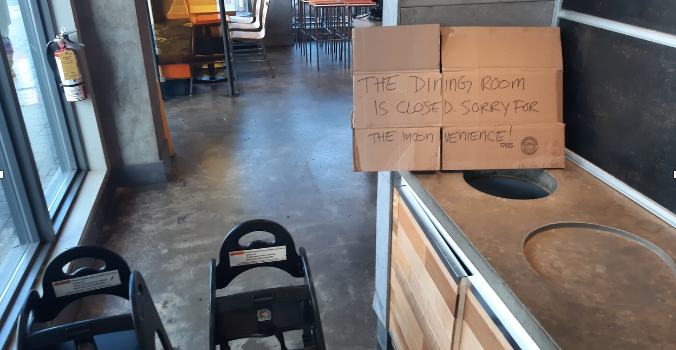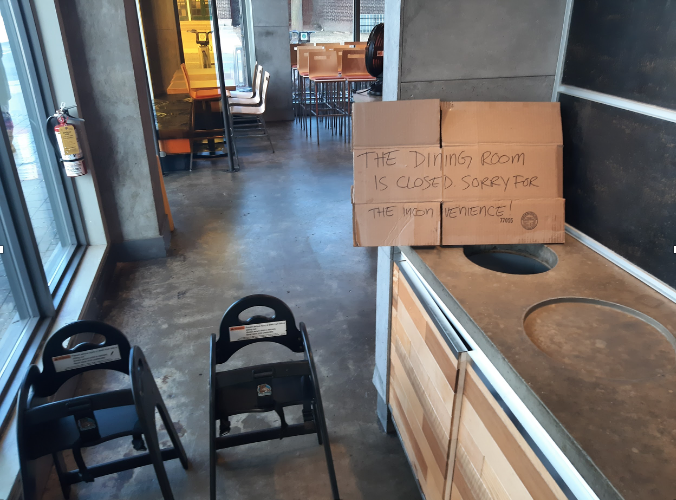

Small business owners grapple with the reality of COVID-19
COVID-19Toronto Apr 19, 2020 Jacob Brooks

By Jacob Brooks
When COVID-19 hit, what concerned people most were the basic fundamental uncertainties of any crisis, and rightfully so. What kind of supplies will continue to be readily available? Where will income be coming in from? How will day to day life be impacted?
These questions needed to be answered quickly. However, in the chaos, a subset of people was left behind: small business owners. While the sustainability of big corporate stores like Walmart were never in question, it was these smaller, often family-run establishments that have been left in the dust.
Jordan Chang owns a small franchise restaurant on St. Clair Ave. Before the crisis, the restaurant was rarely staffed by more than three workers at a time, and the entire staff consisted of just 10 people total. In the COVID-19 era, Chang now runs the ship by himself.
Brooks: What has life been like since the Covid-19 pandemic began?
Chang: Hectic. I mean, really, really hectic. I’ve always been a pretty work-oriented person, but I can’t keep up. I see all these other people who are on Insta talking about how bored they are, but I’m not like that at all. Even with the reduced hours, I’m still here around 10 hours a day, almost every day by myself with no breaks. It was exhausting running the store before, but it’s just so much worse now.
Where did the staff go?
Most of them left for their safety. Even with dining restrictions, it’s still a very customer-centric job, and they didn’t feel safe coming into work. I don’t blame them though. I get it. I can’t ask them to risk their families and all for a job. But it does mean I have to run this place alone.
Are you worried about your own safety?
Yes and no. It’s a risk, but at the end of the day, I need to do it. I would be more worried if I had an option, but closing just isn’t an option, so I just power through.
Is the government helping out businesses like yours?
They are, but it’s not enough. I mean it’s better than nothing, but it’s not enough. It would be worse if we closed the doors, which is why i’m staying open for now. I just don’t know how much longer I can keep it up.
How has business been since the crisis began?
Not as bad as I thought it would be, but still not as much as before. It’s mostly Uber orders. Uber has been off the charts. It’s difficult to be taking orders from Uber, from Foodora, from Ritual, from all of them, and still be cooking and cleaning and dressing burgers and making sure everything is working right. But that’s where most of the money is coming from, so I can’t really stop.
Do you see relief in sight?
Honestly, I don’t know. I know this isn’t sustainable. I can’t keep running like this. It wouldn’t be so bad if I knew the endpoint. But no one does right now, really.
But I know it’s early days. The government is scrabbling to get everything in place right now. At the end of the day, they can’t do everything immediately. They were caught off guard, they needed time to organize things. So I’m just trying to hold off until there are better plans in place.
How are other businesses in the area doing?
I don’t know honestly, it’s hard to say. Most of them won’t let anyone but staff and delivery drivers in, and of course a lot aren’t open any more. It really feels isolating. I’ve been here eight years, but this is the weirdest time to work here I’ve ever seen. It all feels surreal.
What are some of the more difficult things to contend with right now?
Honestly, I could get through this so much better if I could still get a coffee in the morning.
PHOTO: As restaurants begin to operate with little more than a skeleton crew, the interiors look neglected. By Jacob Brooks, Humber College. April 2020, Toronto, Ontario
